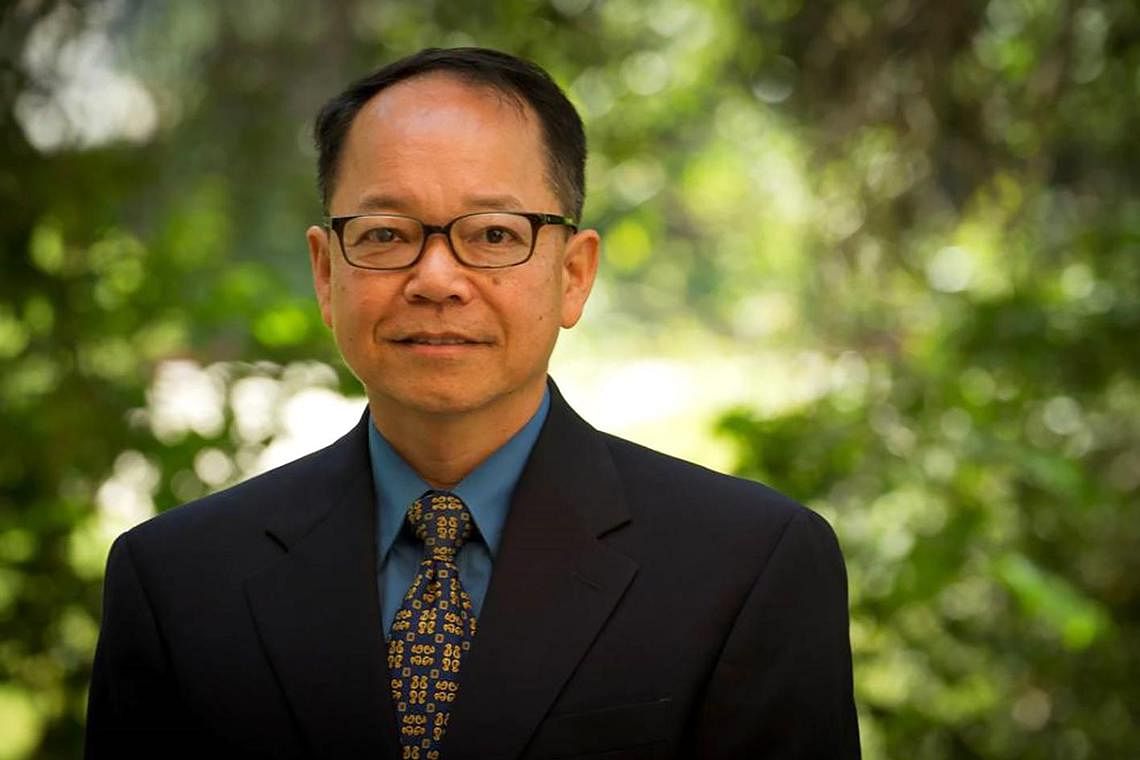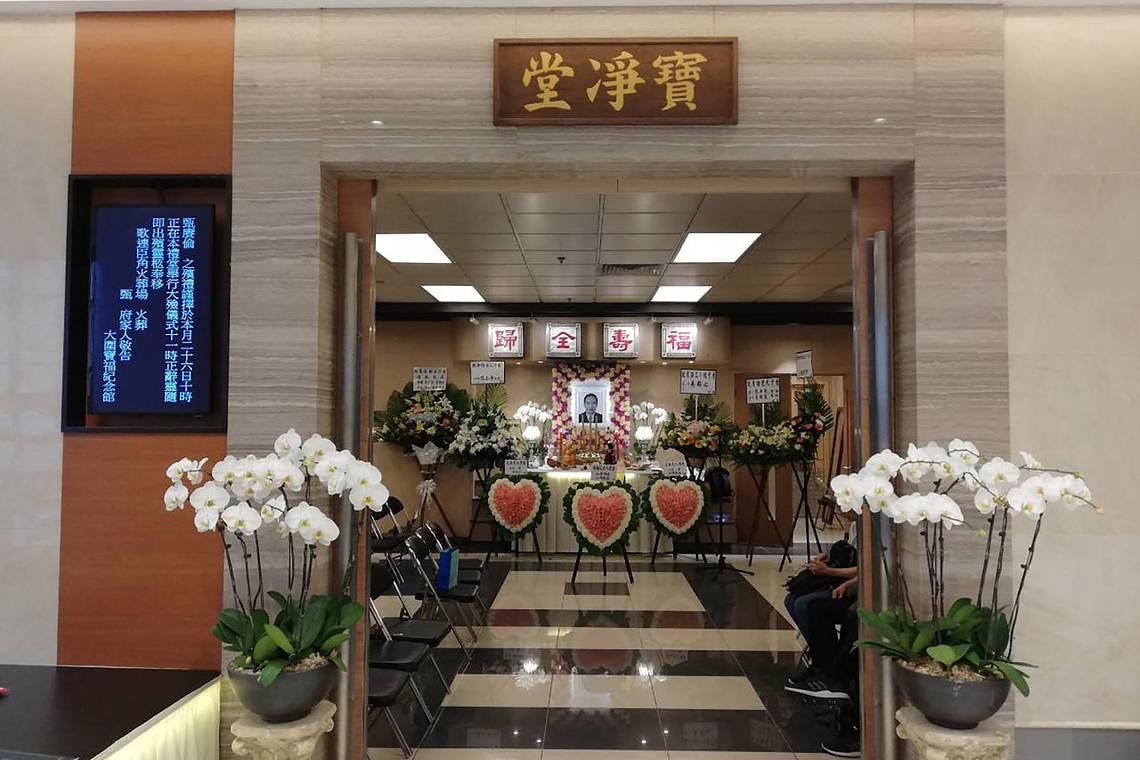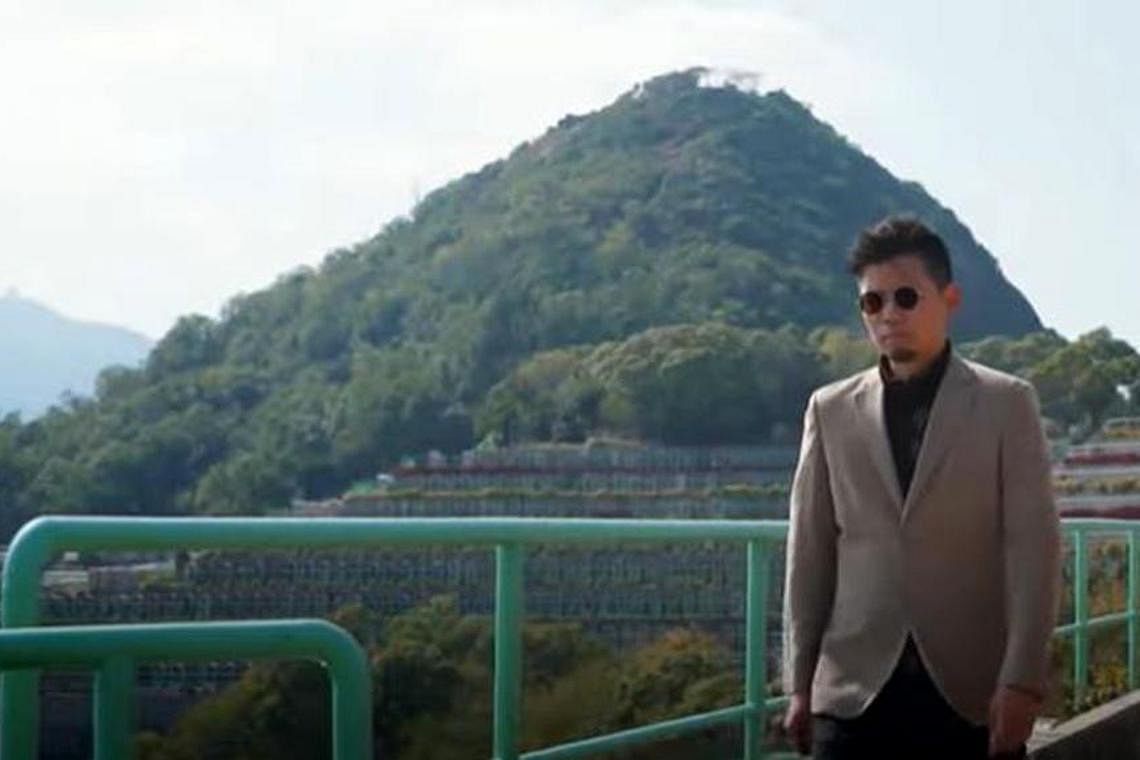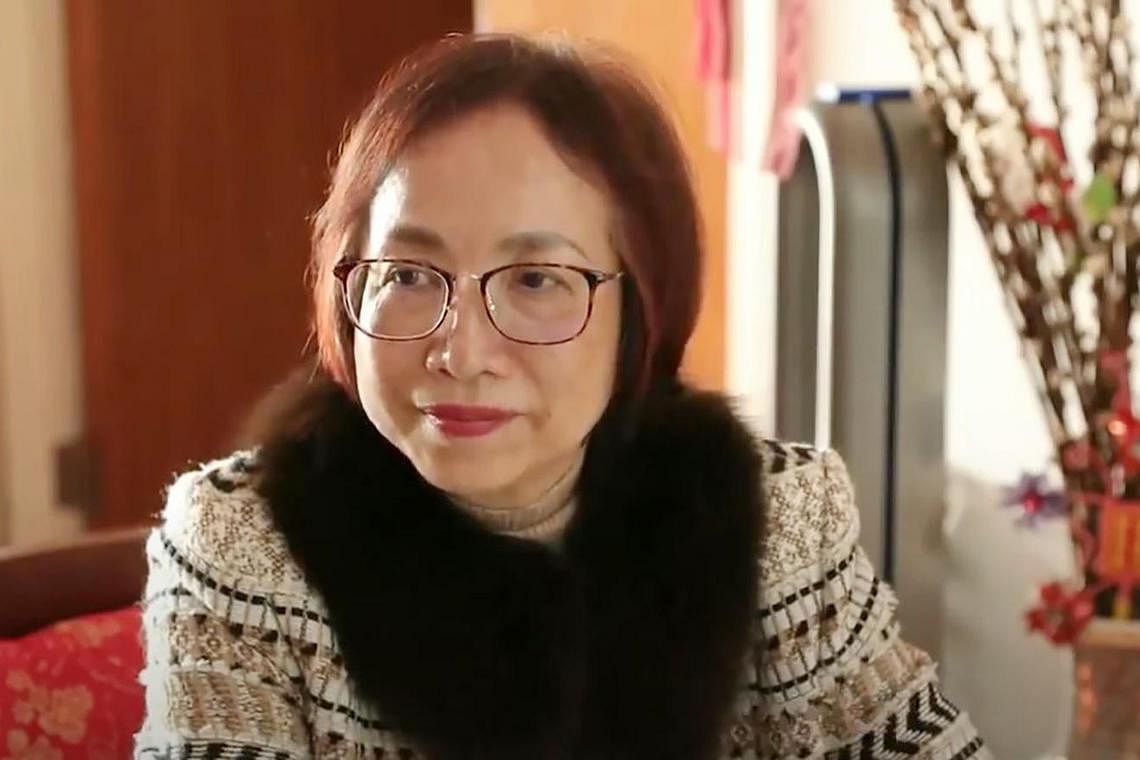HONG KONG – Nearly six years after his stepfather died in Hong Kong, Professor Christopher Tang still recalls vividly the weeks of anguish he went through to put the older man to rest.
Just trying to snag a slot for cremation was a “barbaric hunger game”, he told The Straits Times, referring to the dystopian book and movie series about participants in televised death matches.
“The wait for cremation at that time was more than a month,” said Prof Tang, who had returned to Hong Kong from the United States to oversee the arrangements in 2018.
There was a wait list with slots that would open up for booking when a scheduled cremation was cancelled. But to secure a slot, one had to beat all other mourners on the list to be the first person to arrive at the government office to register for it, he said.
“I had an agent stationed at the office to inform me whenever a slot opened up, and I would have to rush down when called.
“I missed the chance a couple of times, but finally got a slot after a few days,” recounted the Hong Kong-born Prof Tang, an academic at the University of California, Los Angeles.
“It was such a stressful experience amid my mourning… The duration from my stepdad’s passing to the cremation date was three weeks. But locals told me that if I were not from overseas with some financial means to hire an agent, the normal wait for cremation would have been about 1½ months.”

At the crematorium, it was crowded, he recalled.
“I was shocked when staff members rushed me to push the button to send my stepdad’s coffin into the incinerator,” he said. “It was so thoughtless and cruel; they didn’t even give me a choice.”
Prof Tang’s story is one of many that have played out across Hong Kong over the years due to a monopoly of the city’s limited crematorium services.
This has unnecessarily lengthened the time taken to put the dead to rest, which – as was evident in Prof Tang’s case – can inflict profound and lasting trauma on bereaved families already coping with grief.
The supply crunch is set to worsen, according to those familiar with the bereavement industry.

“More people are dying and (more families are) opting for cremation, but our cremation facilities have not increased very much over the past 20 years or so,” Mr Pasu Ng, a funeral director, embalmer and founder of bereavement social enterprise Keep It Simple, told ST.
“Our crematoriums can no longer meet the demand; that’s why it’s taking increasingly longer for cremations to take place.”
Rising demand for cremations
Hong Kong recorded 43,400 deaths in 2013 and 54,400 in 2023. By 2033, the number is expected to near 70,000. Meanwhile, the number of crematoriums, all government-run, has stayed at just six for over a decade.
Cremation has long been the go-to option amid a shortage of burial plots in land-scarce Hong Kong.
As space for inurned ashes at funeral homes and columbariums fills up – and Hong Kongers’ “not in my backyard” mentality hinders more from being built – the government has been increasingly promoting “green burials”.
These refer to a sustainable way of handling cremated ashes, such as scattering them in designated gardens or at sea.
They eliminate the need for a costly storage space as well as another lengthy wait for a date to get the ashes placed in a columbarium, which Mr Ng estimates would take at least another three months.
The government’s efforts have seen considerable success. In 2023, the percentage of green burials out of the total number of deaths was 16.5 per cent, compared with just 8.4 per cent in 2014.
But while this has helped free up space in cemeteries and columbariums, it has not alleviated – and may even have exacerbated – the demand for cremation services.
And while a lot has been documented about Hong Kong’s short supply of cemeteries, columbariums and funeral homes, relatively little has been said about its crematorium problem.
The Food and Environmental Hygiene Department (FEHD) told ST that its six crematoriums provide “about 57,290 cremation sessions each year”.

Since April 2023, two new cremators have been added to one crematorium in Wo Hop Shek, in the New Territories, to cater to the rising demand, its spokesman said.
But services of the four cremators at a crematorium in Kwai Chung will be suspended for upgrading from Aug 14 until the end of 2027, the department’s website showed.
FEHD said a new crematorium is being planned.
But a 2023 proposal for the project, posted on the Environmental Protection Department’s website, showed that if approved, the new facility would be completed only in 2030.
FEHD said its pledges to make a cremation session available to an applicant within 15 days of application and for the ashes to be ready for collection within four days of cremation “have all along been met”.
But Mr Ng said that from his experience, the entire bereavement process can take over a month, typically “three to four weeks” from death to cremation and “minimally another week” before the ashes can be collected, which is “not ideal”.
“Other Chinese-majority cities like those in mainland China, Taiwan or Singapore usually take just a few days. But it’s not the case in Hong Kong largely because of the government’s laidback attitude towards bereavement services,” Mr Ng said.
In Singapore – which has three crematoriums – slots at the only public crematorium in Mandai can be booked online and usually remain available up to a day before the cremation. Ashes can be collected within the day or by the next morning if the cremation is conducted after noon.
The whole process is typically completed within a week from death.

‘Inefficient, outdated facilities’
“In Hong Kong, a timeframe of four to six weeks isn’t uncommon,” said the University of Hong Kong’s Professor Emeritus Cecilia Chan, who has written extensively about death and bereavement care.
“The bottleneck here – which will only worsen – is not just (due to) a lack of cremation facilities, but also a lack of better management of them...
“Having to wait many days, even weeks, to collect the ashes reflects the inefficiency of our outdated facilities,” she said.
Prof Chan said it took about six weeks for her mother’s ashes to be ready for collection following the cremation in early December 2018 – 2½ weeks after her death in mid-November.
The wait for cremation was “not too long” because her family was not picky about the dates, unlike others who preferred auspicious days or weekends when more people could attend, she said.
Mr Ng said he knew of families who delayed a cremation for weeks to accommodate relatives returning from abroad, or even to wait for children to finish their exams.
“Hong Kongers’ bad habit of perfectionism and caring too much about how others see them have hindered the bereavement process. And the government has contributed to this problem by failing to set strict rules on how long families can keep a deceased loved one in public mortuaries,” he said.
“Bodies are stored there for free for however long they wish, so this has enabled people to pick their perfect date and slowly plan for a perfect send-off.”

In Singapore, a body can normally be kept for up to 72 hours at a hospital mortuary. Arrangements for further storage would have to be done by funeral homes and paid for by the bereaved family.
A prolonged after-death process can have a psychological impact on the bereaved.
“The process would be stressful as some may consider the business unfinished or that they have not performed well in doing their last bit for their deceased family members,” Associate Professor Wallace Chan, an expert on grief and loss at the Northumbria University in Newcastle, Britain, told ST.
This in turn allows unscrupulous funeral home workers to manipulate them into spending more on lavish arrangements to assuage their guilt, Mr Ng said.
The lengthy administrative burden also tends to cause the bereaved to withhold processing their grief, unnecessarily dragging out the healing process, Mr Ng added.
Prof Tang, who still recalls with some angst his experience handling his stepfather’s funeral, urged the government to address the city’s lack of crematoriums.
“Residents won’t support any crematorium near their homes for cultural reasons and concerns about their property value falling… while environmentalists worry about carbon emissions,” he said.
“But this is a public issue for public good; if you rely on public opinion, it will never happen.”






No comments:
Post a Comment